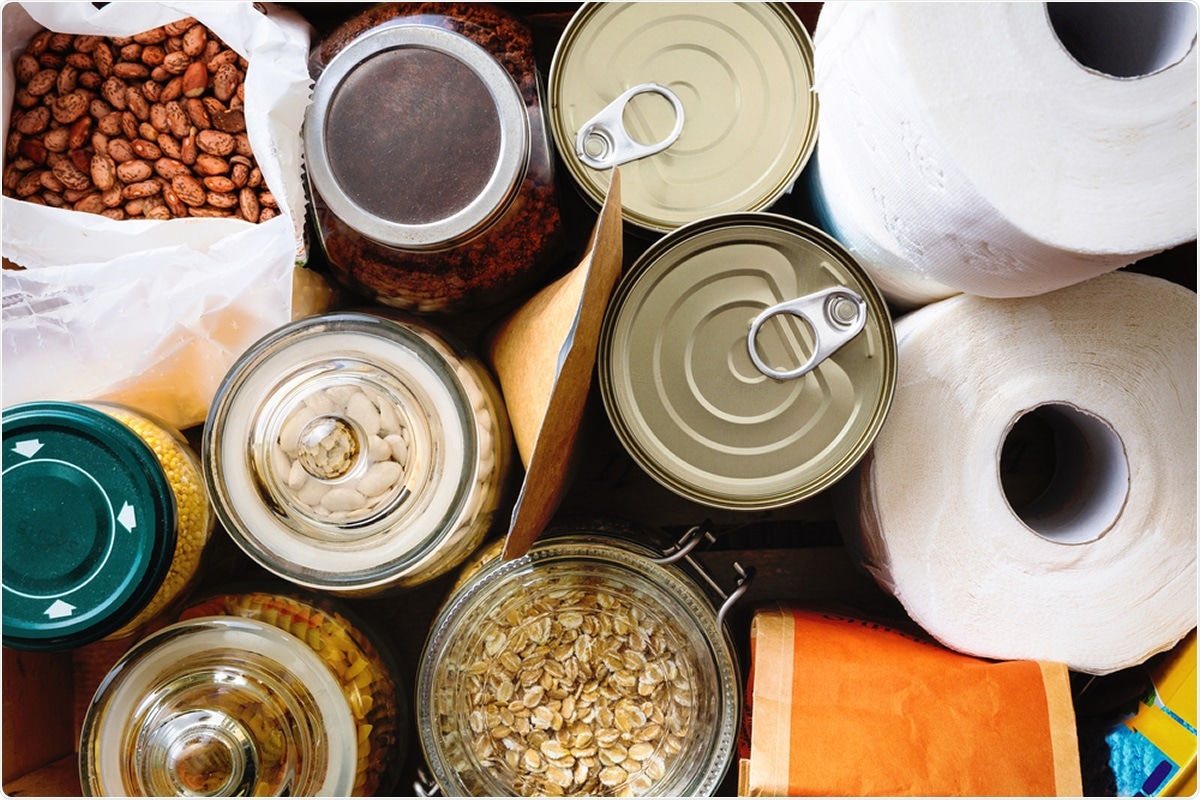Researchers in Germany and Belgium have conducted a survey demonstrating some of the adverse effects the coronavirus disease 2019 (COVID-19) pandemic has had on people’s eating habits.
Overall, the study, which included almost 1,000 participants, showed that food consumption had increased, along with the purchase of convenience foods such as ready-made meals and canned foods with a longer shelf life.
The survey conducted by the Lower Saxony State Food Industry Association (LI Food) also showed that the consumption of alcohol and sweets had increased. In contrast, fruit and vegetable intake had decreased.
Furthermore, the findings reveal that families who have experienced income loss as a result of the pandemic are particularly likely to adopt these less healthy habits.
Adriano Profeta from the German Institute of Food Technologies in Quakenbrück and colleagues warn that as the pandemic continues, repeated lockdowns and school closures can be expected to have severe health consequences in the medium-to-long term, particularly among households with pandemic-related loss of income.
The team also recommends some steps that politicians and stakeholders could take to help counteract the negative developments.
An initial version of the research paper is available on the Preprints* server, while the article undergoes peer review.
COVID-19 mitigation measures have affected day-to-day living globally
The restrictions imposed by many countries to help curb the COVID-19 pandemic have affected the day-to-day lives of millions of people worldwide.
One significant effect has been the impact on shopping habits and, in turn, eating behaviors. The possibility of quarantine has led to concerns about the type and amounts of foods that can be stored, and, in some cases, “out-of-stock” situations have led to the “panic buying” of certain items.
The psychological effects of the pandemic can also influence shopping and eating behaviors. Studies have shown that stressors such as pandemic-related income loss can lead to “comfort eating.” Fear of infection can also lead to less frequent shopping and the purchasing of foods with a longer shelf life.
What did the researchers do?
The team conducted an online survey of 973 people living in Germany in April 2020 to determine how the COVID-19 pandemic had affected food consumption, shopping behaviors and eating habits in the country.
Between the 22nd and 27th of April, participants were asked about their eating, buying and cooking habits both before and during the pandemic.
What did they find?
Of all participants surveyed, around one-fifth (20.5%) reported that more food had been consumed in their households during the pandemic and almost a third (31.4%) reported stockpiling more food.
The overall increase in food consumption appeared to be primarily driven by households with children and pandemic-related income loss.
Among households without children or income loss, food consumption increased less than it did among households with children and income loss.
In households with children and restricted budgets due to income loss, calorie intake was significantly higher, with a stronger shift towards the consumption of less healthy foods.
Fresh products replaced by more convenient but unhealthy foods
The study also demonstrated an overall decrease in the consumption of fresh fruits and vegetables and an overall increase in the consumption of canned foods, ready-made meals, sweets and alcohol.
“Thus, there was a tendency for fresh products to be partly substituted by more processed, and more durable (convenience) products or partially unhealthy foods (sweets, alcohol),” write the researchers.
Again, when different household segments were analyzed, households with children and loss of income were the most severely affected.
Among households with children and income loss, 17.7% reported eating less fruit and vegetables, compared with only 10.8% of households with children, but no income loss.
For the ready-made meal category, 28.3% of households with children and income loss reported increased consumption, compared with only 16.6% of households with children, but no income loss.
Furthermore, alcohol consumption increased in 21.2% of households with children and income loss, whereas among households without children or a loss of income, it only increased by 11.5%.
Financially affected families represent a vulnerable group
“The findings reveal that families who are financially affected by the pandemic represent a vulnerable group,” writes Profeta and the team.
“With the ongoing duration of the pandemic, repeated lockdowns, corona-related closings of schools and kindergartens, severe health consequences are to be expected in the medium-to-long term, especially for this population group,” they warn.
The researchers recommend some steps that politicians and other stakeholders can take to help counteract these negative effects of the pandemic.
For example, they advise keeping schools and kindergartens open for as long as possible as the meal planning involved can have a direct positive influence on children’s nutrition.
The team also suggests increasing the quality of community catering for children by adjusting the caloric content of food options to children’s age groups.
*Important Notice
Preprints publishes preliminary scientific reports that are not peer-reviewed and, therefore, should not be regarded as conclusive, guide clinical practice/health-related behavior, or treated as established information.
- Profeta A, et al. The Impact of Corona Pandemic on Consumer’s Food Consumption – Vulnerability of Households with Children and Income Losses. Preprints 2021, 2021010153 (doi: 10.20944/preprints202101.0153.v2). https://www.preprints.org/manuscript/202101.0153/v2
